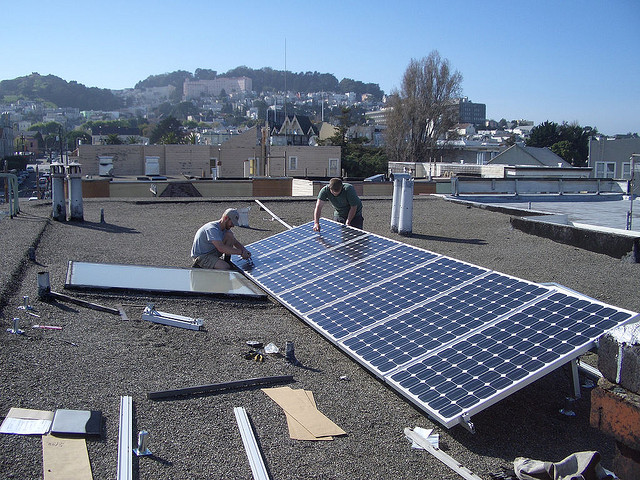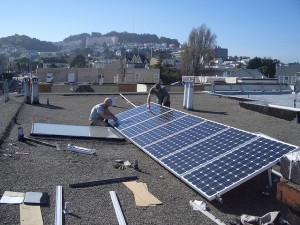
Solar and Wind Surcharge Bill Passes Legislature, Awaits Governor’s Signature
-
Joe Wertz
A legislative measure that would allow electricity utilities to charge higher rates to customers who generate electricity with small solar installations or wind turbines has passed an Oklahoma House committee and now awaits Gov. Mary Fallin’s signature.
Senate Bill 1456, authored by Sen. A.J. Griffin, R-Guthrie and Rep. Mike Turner, R-Edmond, drew opposition from environmental groups and solar advocates. Existing generators like Herb Hill from Crescent, Okla., are exempt from the bill. But, if signed, the measure could impact future Herb Hills, The Oklahoman‘s Paul Monies reports:
… the 85-year-old utility company retiree has 36 solar panels and a 100-foot-tall wind turbine. He also has a propane-powered emergency generator to back up the electricity from his local electric cooperative.
Hill’s neither a “doomsday prepper” who’s ready to live off the grid, nor a hardcore environmentalist enamored with green energy. He just wants cheap, available electricity to help run his deep freezers and his spa.
Oklahoma’s major electric utilities, Oklahoma Gas and Electric and Public Service Co. of Oklahoma, backed the bill. The utility industry argues the surcharge is needed because customers who generate electricity are using an existing electric infrastructure without paying for it, Monies reports:
SB 1456 reversed a 1977 law that forbade utilities to charge extra to solar users. The new bill allows regulated utilities to apply to the Oklahoma Corporation Commission for a new class of customers who use distributed generation. The customers would be charged a higher base rate to make up for the infrastructure costs for sending excess electricity back to the grid.
Nationally, electric utilities see distributive power generation — particularly from rooftop solar — as a threat to their business model. A 2013 report by the Edison Electric Institute, the industry’s trade group, warned of “a day when battery storage technology or micro turbines could allow customers to be electric grid independent.”
Fights between utilities and solar users over surcharges have popped up in other states, too, including Arizona, California, Hawaii and South Carolina, Monies reports.

